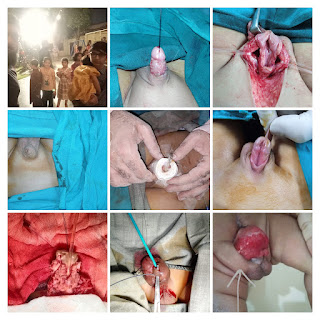Get comfortable being uncomfortable
Get Comfortable Being Uncomfortable: A Surgeon’s Perspective
In the sterile silence of an operating theater or the emotional noise of a parent’s worry, comfort is a rare luxury. Yet, I’ve come to realize that the discomfort we often try to avoid is exactly where growth begins.
As a pediatric urologist, I face complex surgical challenges that rarely have easy answers. There are procedures so delicate that even millimeters demand mastery. There are parents whose eyes search yours, begging for certainty, when medicine itself teaches us to navigate the uncertain.
So why talk about discomfort?
Because discomfort is a gift—if you let it be.
The Myth of Control
Modern training, particularly in surgery, can foster the illusion that if we perfect our technique, master our knowledge, and rehearse our protocols, we can prevent uncertainty. But the real world—especially in pediatric surgery—defies that logic. Every child is different. Every condition evolves uniquely. And every day brings a new variable.
True growth happens not when we eliminate uncertainty, but when we learn to stand tall in its presence.
Growth Lives at the Edge
In the early days of my surgical journey, I would dread unexpected complications, or the moments when a decision had to be made in real time with imperfect information. Over the years, however, I’ve discovered that these very moments have sculpted my resilience, sharpened my intuition, and expanded my capacity for compassion.
Every case that made me anxious, every moment I doubted my skill, every difficult conversation I faced—each one quietly pushed me to grow. It’s not about being fearless. It’s about acting despite the fear.
Embracing Discomfort in Practice
Here’s how I’ve learned to welcome discomfort into my professional rhythm:
Preparation, not perfection: I prepare thoroughly, but I’ve stopped chasing perfection. Medicine is art just as much as it is science.
Reflection, not regret: After a tough day or a complex surgery, I reflect—not to blame myself, but to grow.
Dialogue, not defensiveness: I’ve opened myself to feedback—from peers, parents, and patients. Not every word is pleasant, but all hold value.
Teaching This to Others
To my students, juniors, and even colleagues—I encourage you: seek out the tough rotations. Volunteer for the difficult cases. Sit in clinics where language is unfamiliar, or where your presence is questioned. These are the furnaces where your character is forged.
Final Thoughts
Discomfort is not a detour. It is the path.
In our field, we deal not only with physiology, but with human lives and fragile hopes. The moments that feel overwhelming are the same moments that refine our purpose. So, get comfortable being uncomfortable. That is where you’ll find your calling—not just as a doctor, but as a human being.






Comments
Post a Comment